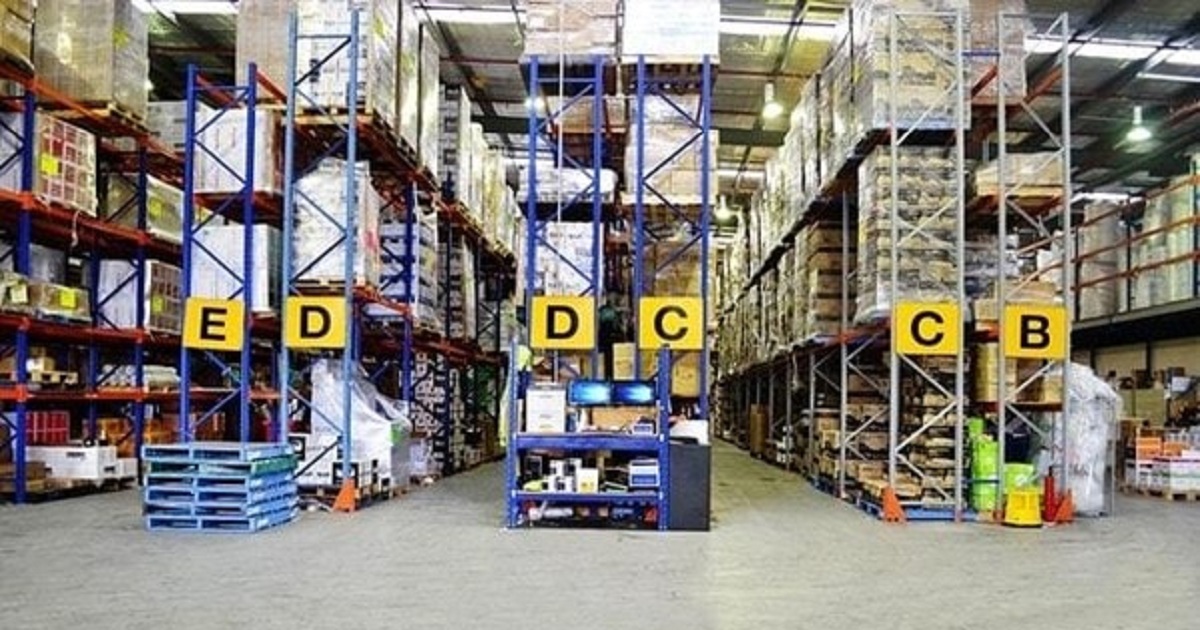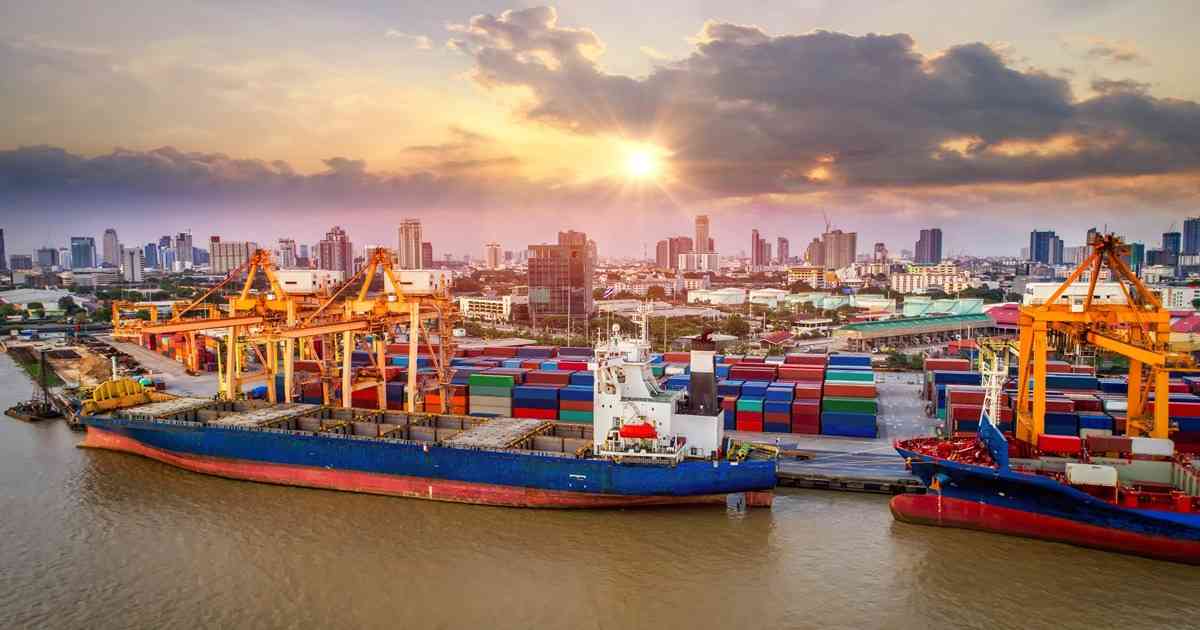
Warehousing and Distribution
Article | July 11, 2023
Labor costs, on an average, constitute more than 65% of the expenses for a warehouse. It is a best practice to review the operation of your warehouse before implementing automation, but it also has a significant impact on production and operational efficiency. The processes in a disarrayed warehouse cannot easily be automated as automation heavily relies on warehouse layout optimization, as well as standardized processes and procedures.
Read More

Warehousing and Distribution
Article | June 27, 2023
Discover future trends & innovations at upcoming warehousing conferences and events. Explore technologies, growth opportunities and networking possibilities to improve the supply chain operations.
Warehousing and distribution play crucial roles in the logistics industry. To enhance the expertise and gain a competitive edge, professionals must attend logistics conferences in 2023, including the supply chain management and warehousing conferences and events. These gatherings offer a platform for industry leaders to exchange ideas, learn from experts, and explore the latest advancements.
The following warehousing conferences and events will provide tailored discussions on warehouse optimization, inventory management, and process improvement.
1. ASCM Connect 2023: Europe
June 27-28, 2023 | Brussels (Belgium)
ASCM CONNECT 2023: Europe, held at DoubleTree by Hilton Brussels City, is a must-attend event for supply chain professionals. This networking opportunity will offer educational sessions, trending topics, and valuable insights from industry leaders like Matteo Coppola (Integrated Business Planning Director Kellogg), Hans Ehm (Senior Principal Engineer Supply Chain and Head of Supply Chain Innovations Infineon), Juliana Hsuan (Professor, Operations Management and Supply Chain Management Copenhagen Business School), and more. Logistics and supply chain industry leaders will benefit from the event by gaining knowledge on supply chain management trends and innovations. One of this logistics events further equips professionals with the tools to streamline operations, improve efficiency, and reduce costs.
2. Innovation and Industrial Logistics (ICIIL 2023)
August 25-27, 2023 | Tapi (Macao)
The 9th International Conference on Innovation and Industrial Logistics (ICIIL 2023) is an exclusive supply chain conference for logistics and warehouse management industry leaders. The conference will include topics like purchasing, supply chain management, transportation, and warehouse optimization. This warehouse event will offer valuable insights into the latest trends and advancements. Professionals will be able to network with experts and peers, fostering collaboration and partnerships. Attending ICIIL 2023, held at the Macau University of Science and Technology, will enable attendees to enhance their expertise, optimize operations, and stay ahead in the dynamic supply chain and logistics industry.
3. ASCM Connect 2023: North America
September 11-13, 2023 | Louisville (Kentucky)
An indispensable supply chain event for logistics industry leaders will have 120+ speakers, 70+ education sessions, and eight innovation labs. This premier event will offer a comprehensive program with thought-provoking insights, hands-on workshops, and networking opportunities. Keynotes by influential figures such as John J. Sullivan (Former United States Ambassador to Russia (2020-2022)), Elliott Harris (United Nations Chief Economist), and Amanda Manna (Futurist and Vice President, Singularity University) will further enhance the experience. Attending ASCM CONNECT 2023 will enable professionals to stay ahead in the dynamic supply chain industry and encourage them to enlarge their network with people having different ideas from the industry to improve business operations.
4. Automotive Logistics and Supply Chain
September 26-28 2023 | Dearborn (Michigan)
A pivotal event for the supply chain and logistics industry, Automotive Logistics & Supply Chain Global will offer the opportunity to regain control and confidence in North America's automotive supply chain after years of crisis. It will explore the impact of policies on supply chain operations and emphasize the importance of building diverse and inclusive teams. Key speakers include Renee Wawrzynski (Executive Director of Global Logistics at General Motors), Chris Styles (Vice President of Logistics at Lucid Motors), and Oliver Bilstein(Vice-President Production Control, Logistics, and Material Control. BMW Manufacturing Co.), and others will share valuable insights. In addition, this warehouse conference event will be equipping professionals to navigate the challenges of a rapidly changing industry.
5. LogiPharma
October 04-06, 2023| Boston (Massachusetts)
This event for pharma, biotech, and medtech supply chain executives in North America, has been a beacon of innovation and best practices since its inception in 2002. From a network monitoring expert's perspective, attending LogiPharma offers industry leaders in the supply chain and logistics industry an unparalleled opportunity to stay ahead of the curve. By bringing together supply chain leaders from the manufacturing and distribution sectors, LogiPharma will promote collaboration and enhance supply chain management effectiveness. Attending this logistics and pharmacy conference will enable executives to be updated with industry trends and build vital relationships through interactive sessions and workshops by key speakers like Samir Gami (Sr. Director of Advanced Customer Capabilities Johnson & Johnson - Janssen), Ed Ram (Sr. Director, Supply Chain Sagent Pharmaceuticals), David Sokoloff (Director, Global Logistics & Materials Management Novavax), and more. Prepare to transform the business and build a resilient supply chain in the dynamic pharmaceutical industry.
6. Logistics Technology USA 2023
November 1-2, 2023 | Dallas (Texas)
To foster growth and disruption in the logistics industry, Logistics Technology USA is the premier event where logistics technology innovators gather. This warehouse management conference will offer logistics service providers the opportunity to experiment, break barriers, and create the future of logistics. With a focus on cutting-edge technologies like machine learning, drones, robotics, and artificial intelligence, attendees can gain valuable insights to enhance their businesses. Key speakers will share their expertise, including Pritha Mehra (Chief Information Officer and Executive Vice President of USPS), Ben Cubitt (Senior Vice President of Procurement and Engineering Uber Freight), Geoff Kelley, and others. Further, the conference will offer valuable sponsorship opportunities to get your brand in front of prospects and clients who can transform your business. The networking sessions also facilitate meaningful connections, helping kickstart sales cycles and accelerate business development efforts.
7. 7th Annual European Supply Chain Management Summit
November 07-08, 2023 | Las Vegas (US)
The European Supply Chain Management Strategies Summit is a leading supply chain conference that will offer senior leadership case studies and solutions. This event's primary focus will be to improve logistics and inventory management, implement IoT and new technologies, enhance supplier collaboration and transparency, and mitigate process risks. Additionally, the event is CPD accredited, ensuring the best opportunities for professional development. The event will also be enriched with inputs from the following key speakers, including Angelo Dalporto, a renowned expert in logistics and inventory management, Damodar Hegde, an authority on implementing IoT and new technologies, Leon van der Merwe, a specialist in supplier collaboration and transparency, Luke Kerr, a seasoned professional in risk mitigation strategies, and Sebastian Sołtys, an expert in workforce leadership and engagement. Their valuable perspectives and knowledge will help improve the supply chain warehousing and distribution strategies.
8. Future Supply Chain
November 28-29, 2023 | Torrey Pines (California)
Unlock the secrets to achieving total visibility in your supply chain at the upcoming digital supply chain event. With a staggering 69% companies lacking complete transparency, this event is a must-attend for supply chain and logistics industry leaders. The event will provide practical insights from end-user case studies and guide how to implement transformative technologies to propel the supply chain forward. The event will also boast an impressive lineup of key speakers, including Dave Campbell (Associate Director of Supply Chain Transformation, Proposals, & Comms), Sree Duggineni (Executive Director, Supply Chain Operations), Imara Charles (Vice President, Process and Digital Excellence), Marcus Handy (Director of Supply Chain and Operations), Ivy Huynh (Head of Logistics, Supply Chain), Reginald Mingot Blanc (Vice President of Operations & Integrated Supply Chain), Alexandra Garyn (Senior Director of Supply Chain Management), and Hari Perumal (Chief Supply Chain Officer).
9. The Global Destination for Logistics and Supply Chain Innovation
February 05-07, 2024 | Caesars Forum (Las Vegas)
Experience the future of logistics at Manifest, the premier gathering that will unite Fortune 500 global supply chain executives, logistics service providers, innovators, and investors in Las Vegas. This exclusive event will showcase the latest advancements in logistics tech and end-to-end supply chain practices that will help shape the industry's landscape. Supply chain and logistics experts will have unprecedented access to industry leaders and thought-provoking sessions that will provide valuable insights into emerging trends and strategic opportunities. Key speakers include Zane Adams (Co-Founder of EVP Strategy and Development FedUp Foods PBC), Moid Alwy (Chief Supply Chain Officer at EVP), Ian Arthurs (CEO & Founder at Circular.co), Andy Bair (Founding Partner at Sway Ventures), Amiee Bayer-Thomas (Chief Supply Chain Officer at Ulta Beauty), and Stephanie Benedetto (CEO & Founder of Queen of Raw).
10. IWLA Convention & Expo 2024
April 21-23, 2024 | Orlando (Florida)
The 2024 IWLA Convention & Expo is an event for warehousing leaders of North America's logistics and supply chain industry. This supply chain convention will offer a unique opportunity to connect, learn, and network with fellow logistics leaders. Whether you're a first-time attendee or a returning participant, the convention promises valuable experiences and connections that can enhance one's profession in the warehousing industry. Joining this event will provide insights into the latest trends and best practices and foster new relationships and a wealth of ideas to drive warehouse logistics operations forward. In addition, this premier gathering of warehouse industry professionals will also emphasize the solutions and experiences of the key speakers from the industry.
Key Takeaway
Attending logistics conferences such as the supply chain management conferences and warehousing conferences & events in 2023 is essential for professionals in the logistics industry. These events offer valuable opportunities to exchange knowledge, learn from experts, and explore the latest advancements in supply chain management and warehousing practices. Professionals will be able to optimize their supply chains, enhance warehouse operations, and gain a competitive edge in the dynamic business landscape by participating in these gatherings. Drive business success by leveraging the techniques and networking opportunities, these industry-leading events provide.
Read More

Warehousing and Distribution
Article | July 17, 2023
The unsurprising investment eagerness of venture capital funds is manifesting in an automation tech glut in the distribution center space. Motivated by enabling trends like labor and land shortages, DCs are amid an automation transformation. Never has defining an automation strategy been more important.
There’s no shortage of VC cash available to logistics tech startups
With a brightly shining spotlight centered on supply chains for the past two years, it’s no surprise that total funding in logistics startups has seen a dramatic increase – growing at over 70% CAGR (Compound Annual Growth Rate). Logistics technology startups raked in over $25 billion in the first three quarters of 2021. That’s more than half of the total amount raised in the whole of 2020, and the incentives for continuing investment persist.
The rise of the of the “micro” DC
“Micro” is a relative term. The size of a micro fulfillment center (MFC) can range from 5,000 to 50,000 square feet. Those reduced square footages allow location in dense urban areas, typically within 40 miles of most of their intended customers. In addition, smaller footprints lead to reduced rents compared to a standard customer fulfillment center (CFC), and the proximity to consumers makes for lower final mile delivery costs. It’s no wonder that MFCs accounted for more than half of the logistics real estate leasing activity in the third quarter of 2021. The “urban logistics” trend is fueling demand for these highly automated, smaller locations.
Vertical logistics integration grows ever more fashionable among retailers
It’s a very “in” thing right now, these acquisitions and partnerships, and they won’t be going out of fashion soon. For example, American Eagle took in Airterra and its parcel optimization tech and third-party logistics (3PL) provider Quiet Logistics.
Target started early. They bought Grand Junction, a software platform that helps retailers determine the best delivery method and track carrier performance, in 2017. Their 2020 acquisition of Deliv brought with it same-day delivery routing technology that they’re now applying to their 2021 purchase, on-demand delivery service Shipt. Target uses Delivs’ tech to generate more efficient routes for Shipt.
Kroger has partnered with UK’s e-grocery specialist Ocado to build automated CFCs across the US and expand their retail footprint. The first CFC opened last spring in Ohio and their second in Florida later that year. They plan to open 20 CFCs over the next three years.
“The proliferation of DC automation solutions and modalities, the rise of MFCs in high-density urban areas, the increasingly automated vertical integration of logistics, and the need to rapidly expand order fulfillment capacity have all, in combination, advanced the need for and application of clearly defined strategies concerning the implementation of automation technology. Do not operate without one.”
Vikas Argod, Principal, Supply Chains Operations practice at Chainalytics
Coping with shortages in warehouse space and labor availability
Third quarter, 2021 US demand for industrial real estate exceeded supply by 41 million square feet. This pushed the national vacancy rate in the fourth quarter down to a record 3.7% in the Cushman & Wakefield US National Industrial MarketBeat report for Q4 2021. Who knows what the record might be when the Q1 2022 report breaks in a few weeks?
On the labor side, the December 2021 US unemployment rate was 3.9%, lower than in December 2019 (3.6%) yet reflecting a tighter labor market. Labor force participation rates are at 61.9%, nearly 2% below February 2020 levels, because of lingering effects of the COVID-19 pandemic. The rising wages and signing bonuses of the past year offer silent testimony to the ongoing constraints in today’s labor market.
Both trends will remain with us for the near- and mid-term, making an automation strategy a necessary part of your DC operations as you attempt to mitigate the effects of both. In addition, warehouse labor shortages are most pronounced in markets with high distribution center densities – Greater Memphis, In-land Empire, Allentown, PA, et al.)
Building the capability to rapidly open DCs at scale
No other factor drives home the need for a coherent DC automation strategy like this one. Let’s explore it with an example.
We’ll call this “A Tale of Two Companies.” One jumped on the automation bandwagon without hesitation – not a bad thing – but applied no strategic groundwork. The other is, well, Amazon.
Company one responded to increasing demand by creating DCs in their usual, strategically located fashion. However, with automation, the lack of a logical strategy led to adopting “the best that money could buy.” So, while these DCs work fine on their own (most of the time), each employs unique implementations from a variety of vendors, with little to no overlap of methods, capabilities, and management procedures between DCs. It’s functional, but a needlessly complicated hodgepodge.
On the other hand, it definitely looks like Amazon has a standardized automation strategy. One that can easily adapt to exploit the individual physical specifications of any space. This makes it simple to arrive and equip it with a standard package of automation solutions. That’s probably how Amazon blanketed the US with over 400 new DCs in just the last two years. They waste no time or money on repeating unnecessary decisions along the way.
Now, we all can’t have the resources of an Amazon. However, the rise of on-demand warehousing companies like Stord and Flexe allow organizations to dramatically decrease the cycle time of standing up additional fulfillment capability.
Developing an automation strategy will feel familiar. It begins with benchmarking, order profiling, current performance drivers, EBIT targets, and theoretical evaluations of newer technology options. All this leads to the creation of a decision framework for DC automation. The goal here is achieving alignment among the leadership on critical capabilities to focus on. These include rapid fulfillment, labor shortage, capacity constraints, safety challenges, or sustainability. Those that commit to this process will start slowly but finish with a strategy that will underpin thousands of decisions and enable sustained rapid growth.
If, in the end, you decide that automation is not right for your operation, that’s a perfectly valid strategy as well. So long as you have a method to evaluate all of your options, and you base your decision on cost-service-sustainability trade-offs, the right strategy for your organization may be no automation at all.
There’s no point in chasing shiny robotic objects if automation makes little sense.
The rise of automation and the multitude of technologies to choose from require the development of a strategic decision framework. Contact us and see how Chainalytics – an NTT DATA company – can be your guide in developing this critical part of your foundation for growth. Our top supply chain talent, enabled by proven, leading-edge digital assets – tools, methods, and content – deliver actionable insights and measurable outcomes to some of today’s largest and most complex supply chains.
Read More

Software and Technology, Supply Chain
Article | July 18, 2022
Oracle, a leading provider of computer technology, published a paper analyzing how supply chain managers should use change as a catalyst in "inspiring and engaging employees." In the report, Oracle highlights how organizations across the world are going through radical shifts in the way they operate.
Customers need quick, convenient, and customized solutions today. Employees also have higher expectations, looking for companies that are a match for their values, provide flexible working arrangements, and offer cutting-edge tools. Shareholders and investors also want more, which forces businesses to focus on making money in ways that are sustainable and diverse.
See Change as an Opportunity
The companies that are most successful, according to Oracle, are those who see change as just another opportunity to reinvent, and the company lists four ways supply chain leaders might find such an opportunity:
Boost employee engagement
Aim for sustainability and responsibility in management
Be quick to respond to disruptions in the supply chain
Exceed consumer expectations
In the paper, Oracle reports that instead of adapting to the change, organizations must be able to stay on top of challenges and prepare well in advance.
Align with an Employee-Centred Culture
Leaders must be able to attract well-matched talent, with the skills to not just fulfil job roles but also drive innovation. Today, people value a work-life balance where they have time to pursue their non-work interests, spend time with their families, and create a diverse, and inclusive world. According to Oracle, this is a significant consideration, and organizations that meet the demands of this new workforce will have a competitive edge in hiring the top talent.
Looking Forward
The Great Resignation has been a hot topic in HR, but the truth is it affects all aspects of business, and importantly, the supply chain, and in the end, the ability to provide smooth customer experiences. HR, customer experience, and supply chain leaders must synergize to become an employer destination to reckon with in order to succeed.
Read More